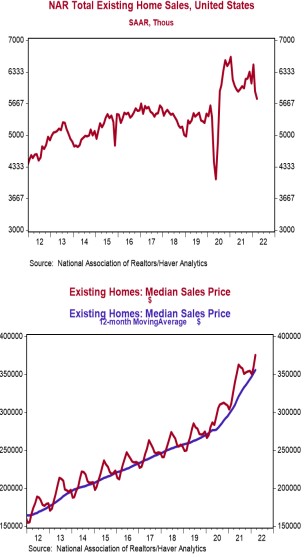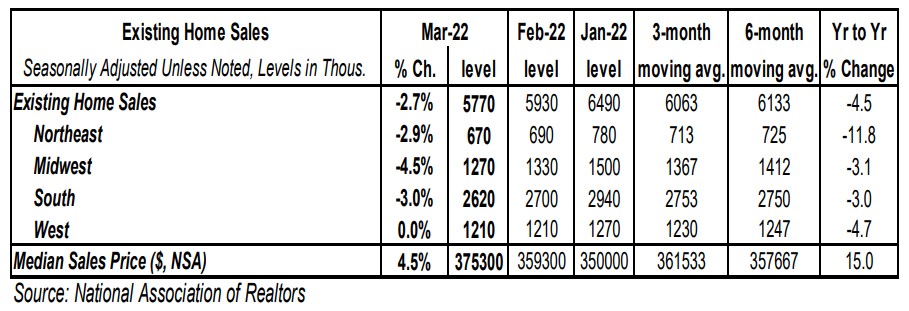- Existing home sales declined 2.7% in March to a 5.770 million annual rate, matching consensus expectations. Sales are down 4.5% versus a year ago.
- Sales in March fell in the Midwest, South, and Northeast, but remained unchanged in the West. The drop was due to both single-family homes and condos/co-ops.
- The median price of an existing home rose to $375,300 in March (not seasonally adjusted) and is up 15.0% versus a year ago. Average prices are up 9.6% versus last year.
Implications:
Existing home sales fell for the second month in a row in March, marking the slowest pace since 2020. Recent volatility shows that the housing market is struggling to find its footing so far in 2022, with falling affordability likely playing a role. The prime culprit recently has been 30-year mortgage rates, which have already risen roughly 200 basis points since December. On top of that, potential buyers are also dealing with a huge mismatch between supply and demand that has pushed up median prices 15.0% from a year ago. Although the months' supply of existing homes for sale (how long it would take to sell today's inventory at the current sales pace) rose slightly to 2.0 months in March, inventories are still down 9.5% from a year ago, the best way to look at the data given the seasonality of the housing market. Despite the lack of options demand remains strong, with buyer urgency so high in March that 87% of existing homes sold were on the market for less than a month. Put it all together and we do not foresee a collapse in home sales even with higher mortgage rates, though it is likely that existing home sales wind up moderately lower in 2022 than 2021. More inventory should become available and price gains will moderate. Also keep in mind that Millennials are now the largest living generation in the US and have begun to enter the housing market in force, making up over 50% of new mortgage issuance for the first time in 2019. This represents a demographic tailwind for sales for the foreseeable future.





